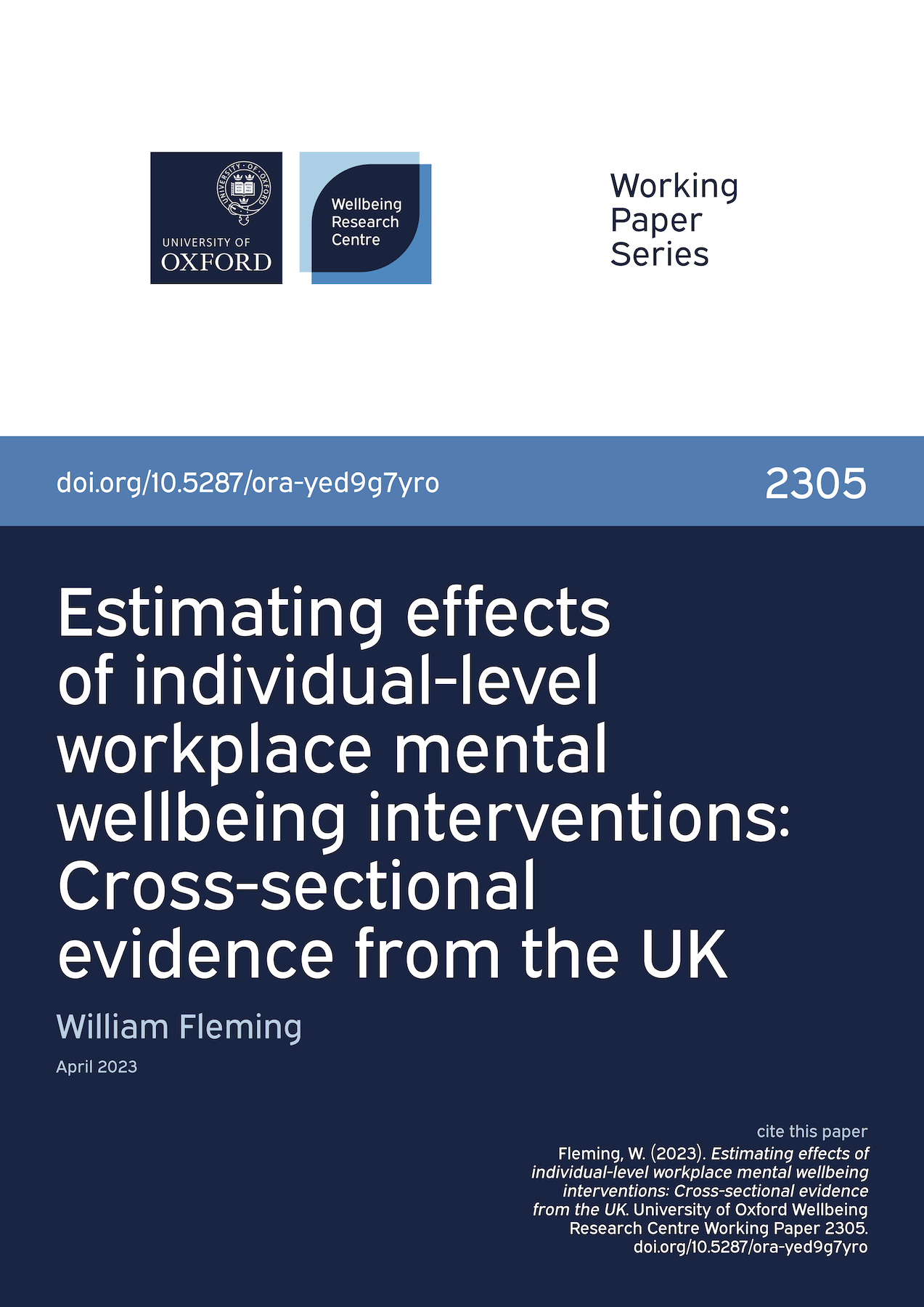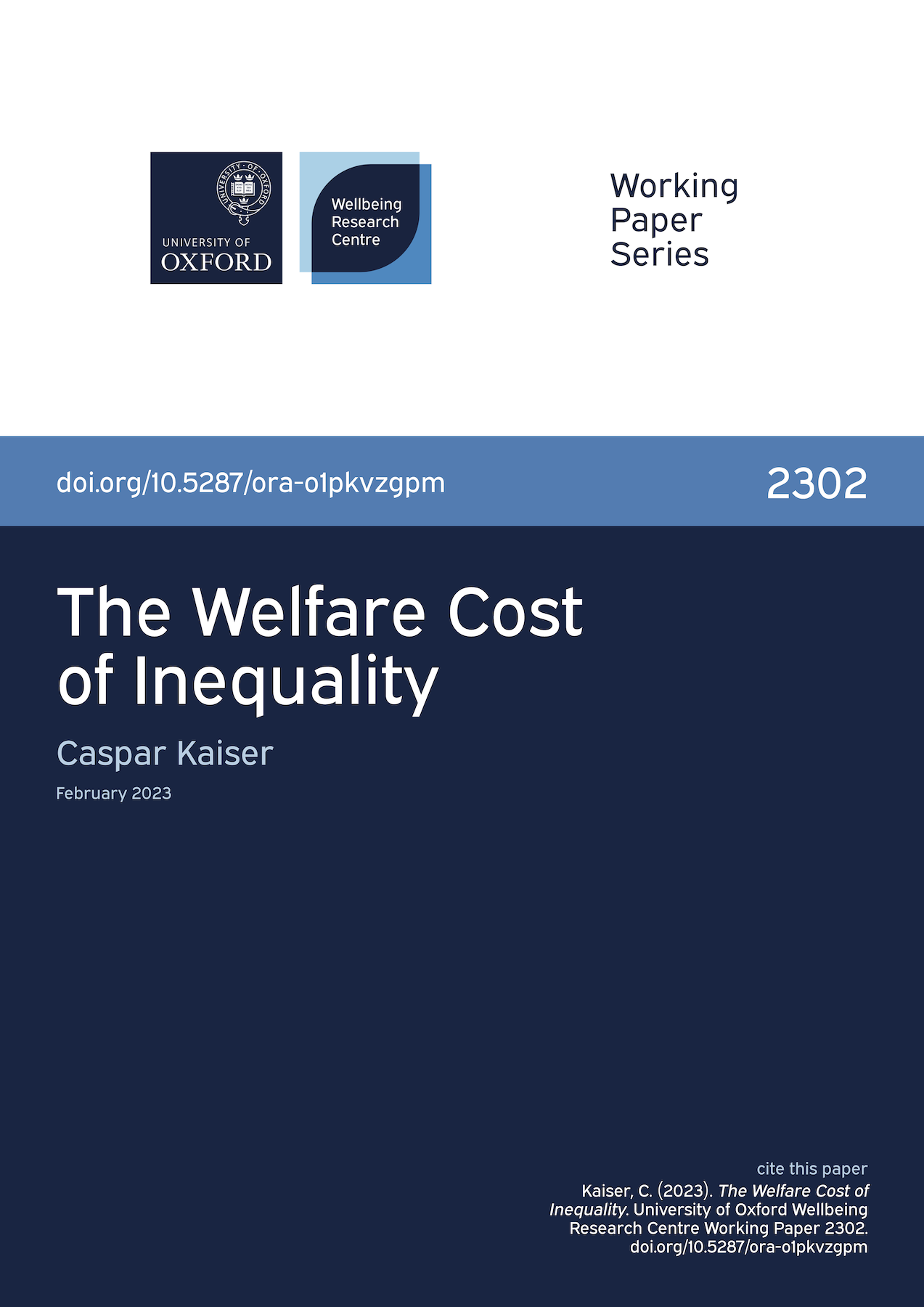
2305 | Estimating effects of individual-level workplace mental wellbeing interventions: Cross-sectional evidence from the UK
William Fleming
Preventative mental wellbeing interventions are formally recommended for all British workers. Despite guidance and academic commentary supporting organisation-wide approaches, interventions that target the individual worker are often more popular. Existing evaluative research of these practices often lacks methodological quality, fails to acknowledge limitations in research design, lacks adequate sample size, or has questionable external validity. Additionally, critical sociologists and trade unions often question the labour and health politics of wellbeing and ‘wellness’ initiatives. This article presents original quantitative research addressing these empirical and normative concerns by estimating the ‘treatment effect’ of mental wellbeing programmes using a sample of 143 British organisations and 27,919 workers. A range of common initiatives are evaluated, including: mindfulness, resilience training, and wellbeing apps. This cross-sectional analysis of multiple subjective wellbeing indicators finds that workers who participate are no better off. The extent to which any causality can be inferred is considered through the lens of selection bias. These tentative results suggest that individualised approaches to improving workers’ wellbeing are not optimal.
*A peer-reviewed version of this paper is now published in the Industrial Relations Journal.

